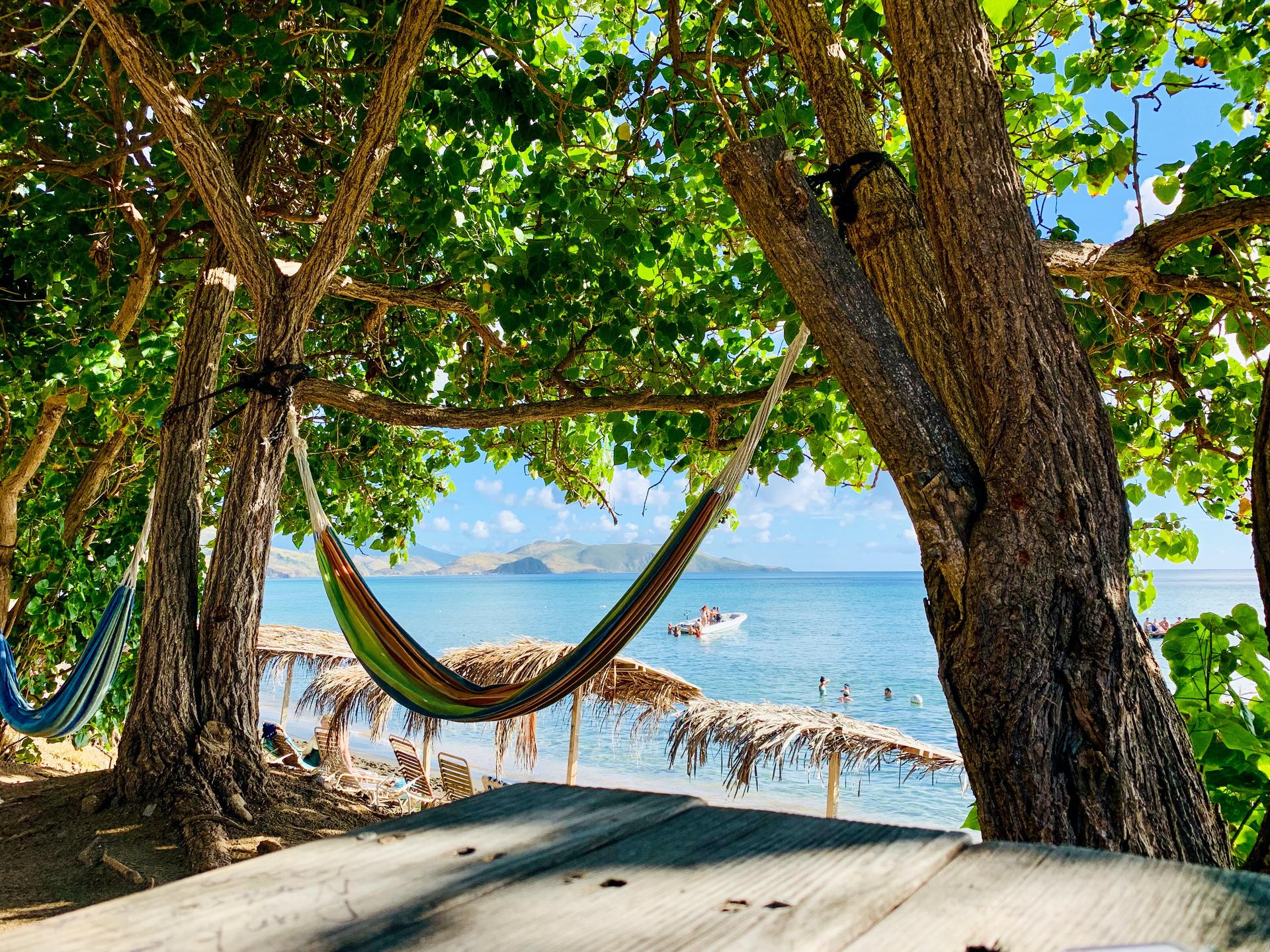Saint Kitts And Nevis🇰🇳

Saint Kitts and Nevis are two beautiful islands nestled in the heart of the Caribbean. Located in the North America Continent with the Atlantic Ocean to the east and the Caribbean Sea to the west. This twin-island country is known for its mountains, beach hideouts, sugarcane fields, and rainforests. It is not bordered by any other countries but the neighboring islands are Antigua and Barbuda, Montserrat, and Anguilla. Known for its vibrant cultures, lively carnivals, and rich history, the country has a surreal beauty unique only to itself. The historic fortress Brimstone Hill, Mount Liamuiga volcano, and rich coral reef beds make this country a special destination. The country has a great relationship with its neighbors, with easy access to the other Caribbean countries. Tourism is recommended for the Nevis Peak climb, Scenic Railways around the old sugarcane farms, and snorkeling.
⚠️Things you should avoid⚠️
- Avoid isolated areas at night to minimize the risk of crime.
- Plan around hurricane season (June to November) to better enjoy outdoor activities.
- Avoid traveling without proper health insurance coverage as medical costs can be significant.
- Try to avoid mosquito bites to prevent Dengue.
- Avoid nudism as it's considered an offense.
- Avoid making any derogatory comments about the monarchy or local politics as this may be considered offensive.
- Avoid drinking tap water after a hurricane or during a drought until water safety can be verified.
- Avoid purchasing properties without proper research due to the issues with land ownership.
- Avoid unlicensed taxis for safety reasons.
- Avoid offending the local culture and tradition.
Overall
8
Crime 🔫
8
Crime rates are relatively low compared to other Caribbean countries, and are mostly drug-related or theft. However, crime rates have seen a slight increase over the years, due to poverty and unemployment. It’s advised to exercise normal precautions, especially in remote areas and at night.
Terrorism 💣
10
Terrorist attacks in Saint Kitts and Nevis are unlikely, thus, the country has a high safety score in relation to terrorism. There have been no significant events related to terrorism in the country's recent history.
War ⚔️
10
Saint Kitts and Nevis has a very stable political environment, with no recent history of war or violent conflicts.
Natural Disasters 🌊
5
The country is prone to hurricanes and tropical storms, especially from June to November. Earthquakes and Tsunamis are rare but are potential natural hazards. The last major hurricane was Hurricane Georges in 1998.
Medical Care 🏥
7
Medical care is good in major towns, with Mount St. John's Medical Centre being the largest hospital. However, in remote areas, medical services can be less adequate. Medical evacuation can be necessary for serious medical conditions.
Tap Water Quality 💧
9
Tap water is safe to drink, but there are occasions where water supply can be disrupted, particularly, during the dry season or after a hurricane.
Disease Burden 🤒
8
The risk of contracting an infectious disease is generally low. However, Dengue fever is present, especially during rainy seasons. Zika virus was prevalent but has significantly dropped.
Corruption 💸
7
Corruption does exist but it is not widespread. The government has made strengthening institutional corruption safeguards a priority.
Safety for Women ♀️
8
Women usually feel safe in Saint Kitts and Nevis, however, it's advisable to take standard precautions, predominantly at night in isolated areas.
Safety for Queer People 👬
6
The attitudes towards LGBT+ people vary. Homosexuality was decriminalized recently in 2020. LGBT+ travelers should exercise discretion in public.
Censorship 📺
9
The government generally respects freedom of speech and freedom of the press, and censorship is minimal. Online speech and content are also generally free from government control.
Public Transportation 🚌
6
Public transportation is fairly reliable within urban areas. In rural areas, it is less consistent. The main form of public transport is minibusses. They are safe to use but may not adhere to strict schedules.
Other useful information
🔒 How safe is it?
Saint Kitts and Nevis is generally a safe place to visit. Crime rates are low and it's considered one of the safer islands in the Caribbean. The country is free from common global threats like terrorism or war. However, the risk of natural disasters can be high, especially during hurricane season.
🏰 Embassies in this Country
There is no U.S embassy in the country but has local consulates. The British High Commission in Bridgetown, Barbados handles issues pertaining to Saint Kitts and Nevis.
💉 Recommended Vaccinations
Vaccinations for Hepatitis A & B, typhoid, yellow fever, rabies, meningitis, polio, measles, mumps and rubella (MMR), Tdap (tetanus, diphtheria and pertussis), chickenpox, shingles, pneumonia and influenza are recommended.
🐍 Dangerous Animals
Fire ants and mosquitoes are the most common nuisances. Sea urchins and jellyfish can sometimes be found in the surrounding waters.
🛂 Visa Requirements
Most foreigners including EU, US, and Canadian citizens do not require a visa for tourist stays up to 90 days.
💲 Currency
The official currency is the Eastern Caribbean Dollar (XCD). Money can be exchanged in banks, hotels and authorized dealers.
💳 Credit Card Acceptance
Most hotels, restaurants, and businesses accept credit cards. However, it's advisable to carry cash for street vendors, taxis, and smaller establishments.
🧑🏭 Is it possible to work and travel in this country?
While tourism and hospitality provide many job opportunities, obtaining a work permit can be a relatively complex process. Voluntary work like eco-conservation programs are available.
💵 Cost of Travel and Living
The cost of travel and living in Saint Kitts and Nevis is moderate compared to other Caribbean nations. Accommodation, food, and public transport are reasonably priced, but imported goods can be expensive.